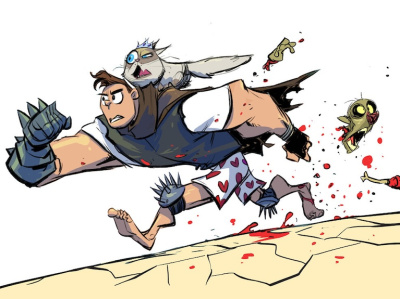Dreamworks Animation’s Abominable brought in an estimated $21 million, topping a lackluster fall weekend that saw revenues drop about 14% from the same frame a year ago when the comedy Night School debuted with $27.5 million.
A co-production with China’s Pearl Studios, Abominable is a harbinger of things to come with American studios looking to appeal to the world’s fastest growing theatrical marketplace at a time when movie attendance here in North America continues to decline. Abominable’s opening is the best so far this year for an “original” animated film (which doesn’t say much for this year’s crop of original animated films), but with a $75 million production cost, Abominable’s financial fate remains in some doubt.
Working in Abominable’s favor is a strong “A” CinemaScore from a diverse opening weekend audience that skewed female (56%) and younger (with 46% under 18). Caucasians made up 42% of opening weekend crowds with Hispanics accounting for 28% followed by Asians (18%) and African-Americans (12%).
Working against Abominable is the October 11 release of the animated Addams Family movie, which could give Abominable a fairly short window to do its damage here in North America.
Last week’s surprise winner, Downton Abbey, slipped 53.3% as it earned $14.5 million to bring its tend-day total to $58.5 million. This theatrical continuation of a popular TV period drama has now earned over $100 million worldwide, which makes it a rousing success (Downton Abbey is already the fifth highest-grossing Focus Films’ release of all time).
Even more successful (at least here in North America) is the Jennifer Lopez-starring Hustlers, which added $11.47 million to bring its domestic total over $80 million, creating the likelihood that Hustlers will eventually make it past the $100 million mark here in North America.
Warner Bros. and New Line’s It: Chapter 2 slid just 32% in its fourth weekend. It has now earned $193.9 million here in North America and $223.5 million overseas for a current global haul of $417.4 million. It: Chapter 2 won’t get close to Chapter 1’s $700 million worldwide total, but it is still a huge success.
The same can’t be said for the Brad Pitt-starring hard science fiction film Ad Astra, which slipped 47% from its inauspicious debut, falling from #2 to #5 on the charts. While its financial fate remains in doubt, Ad Astra has a long way to go to make back its $80 million plus production cost.
The highest per-venue average in the top ten belongs to the musical biopic Judy, which stars Renee Zellweger as Judy Garland. Judy opened in just 461 theaters and earned over $3 million, demonstrating a strong appeal to an audience that skewed heavily female (60%) and way older, with 79% of the audience over 35. While its opening weekend performance was strong, Judy will have to broaden its demographic appeal to earn big returns. Award nominations could help, and the older demo doesn’t usually rush to theaters on opening weekend, so Judy bears some watching.
Be sure and check back here to see what happened on a weekend that will surely belong to Warner Bros. and DC's The Joker, the first superhero film to win the top prize at a major international film festival (Venice), and also easily the most controversial film of the year (at least since The Hunt was pulled from release), with some critics like Time Magazine’s Stephanie Zackarek attacking Todd Phillip’s The Joker as a “shoddily thought-out vision of glamorized nihilism.”

A Pause Before the Controversial 'Joker' Film Debuts Next Week
Posted by Tom Flinn on September 29, 2019 @ 7:20 pm CT
MORE COMICS
Part of 1996 Marvel/DC Crossover
August 1, 2025
Writer Karl Kesel and artist Mike Wieringo are the creative team for the one-shot comic, which was first published in 1996 in the middle of a Marvel/DC crossover.
Crowdfunding Campaign Launches in October, Followed by Retail Release
August 1, 2025
Vault will crowdfund the graphic novel on the Backerkit platform in October, then release it to retail.
MORE COLUMNS
Column by Scott Thorne
July 28, 2025
This week, columnist Scott Thorne comments on the Edge of Eternities prerelease and on Magic: The Gathering news from the Hasbro earnings report.
Column by Rob Salkowitz
July 21, 2025
Columnist Rob Salkowitz lays out the Comic-Con panels of interest to industry professionals, current and aspiring creatives, educators, librarians and retailers.







